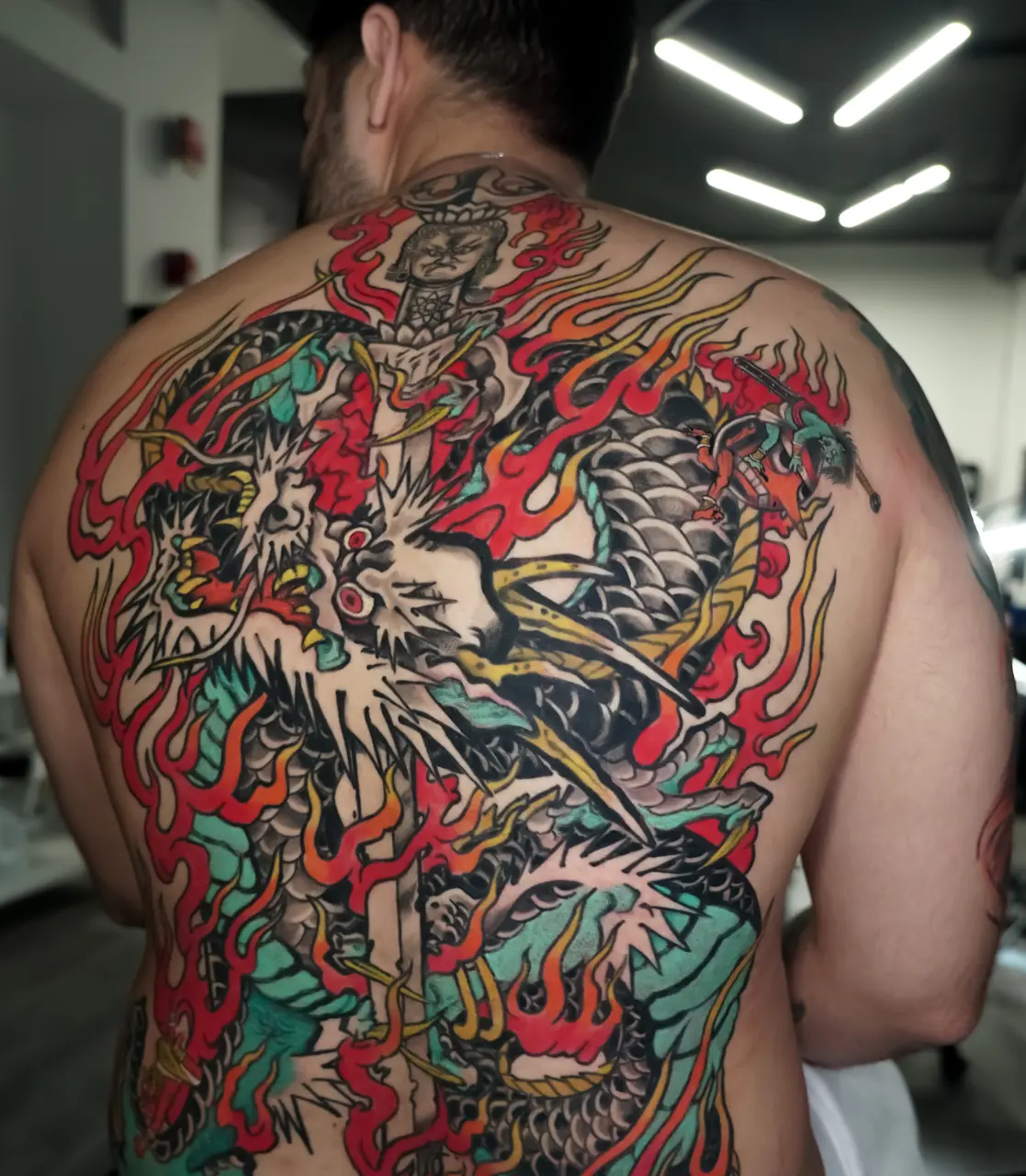Origins of Japanese Dragon Tattoos
Japanese dragon tattoos have deep roots in traditional Japanese folklore and mythology. The dragon is revered in Japanese culture as a symbol of strength, wisdom, and protection. In ancient times, warriors would often adorn themselves with dragon tattoos to invoke these qualities in battle. Dragons in Japanese mythology are also seen as bringers of good fortune and guardians against evil spirits. The intricate designs and vibrant colors of Japanese dragon tattoos reflect the rich cultural heritage and artistic traditions of Japan.
Symbolism of Japanese Dragon Tattoos
Japanese dragon tattoos are often seen as symbols of strength, power, and protection. In Japanese culture, dragons are revered creatures believed to bring good luck and ward off evil spirits. These tattoos are often intricately designed to represent various meanings, such as courage, wisdom, and transformation. The dragon’s long and winding body symbolizes the journey of life, with each scale representing different challenges and obstacles overcome. Japanese dragon tattoos are not only visually striking but also carry deep symbolic significance in Japanese folklore and mythology.
Meanings Associated with Dragon Tattoos
Dragon tattoos are deeply symbolic in Japanese culture. They are often associated with strength, power, and prosperity. In Japanese folklore, dragons are revered as benevolent creatures that bring good luck and ward off evil spirits. The number of claws on a dragon’s foot can indicate its specific characteristics - for example, a dragon with three claws is associated with the Emperor, while a dragon with five claws symbolizes imperial power and is reserved for royalty. Dragon tattoos are a popular choice for those seeking to convey a sense of courage and mysticism in their body art.
Historical Significance of Dragon Tattoos in Japan
Dragon tattoos in Japan have a rich cultural history, symbolizing strength, wisdom, and protection. In Japanese folklore, dragons are revered creatures with supernatural powers. Dragons are believed to bring good luck and ward off evil spirits. Traditional Japanese dragon tattoos often depict the dragon as a wise and benevolent being. The intricate designs of these tattoos showcase the artistry and symbolism deeply rooted in Japanese culture.
Variations in Japanese Dragon Tattoo Designs
Japanese dragon tattoos come in different variations that hold unique symbolism. Here are some common designs to consider:
- Ryu Dragon: This dragon symbolizes protection, strength, and wisdom, making it a popular choice for those seeking power and guidance.
- Tatsu Dragon: Representing success, courage, and magical powers, the Tatsu dragon is often chosen by individuals seeking luck and prosperity.
- Sui-Riu Dragon: Known as the king of dragons, the Sui-Riu dragon embodies control over water and weather, symbolizing authority and dominance.
- Hiryu Dragon: This dragon represents the virtue of perseverance and the ability to overcome challenges, making it a meaningful choice for those facing obstacles in life.
- Han-Riu Dragon: Symbolizing wealth and abundance, the Han-Riu dragon is often selected by those seeking financial success and prosperity in business endeavors.
Significance of Placement in Dragon Tattoos
Placing a Japanese dragon tattoo on different parts of the body carries specific meanings. For instance, having a dragon tattoo on the back signifies protection and strength. Wrapping around the arm symbolizes power and wisdom. On the chest, it represents courage and resilience. Located on the leg can show ambition and determination. Keep these meanings in mind when deciding where to place your Japanese dragon tattoo for a personal and meaningful touch.
Traditional Techniques for Creating Dragon Tattoos
Creating traditional Japanese dragon tattoos involves tebori, a hand method where the tattoo artist uses a needle attached to a stick to manually puncture the skin. This method allows for more control, depth, and precision in the tattoo design. Another technique used is called irezumi, where the design is hand-poked into the skin using a tool that resembles a brush. These traditional methods have been passed down through generations and are valued for the artistry and cultural significance they bring to Japanese dragon tattoos.
Modern Interpretations of Japanese Dragon Tattoos
Today, Japanese dragon tattoos are not only about ancient traditions but also about personal expressions. People nowadays often choose these tattoos to showcase strength, courage, and protection. In modern interpretations, individuals use Japanese dragon tattoos to symbolize resilience, inner power, and a connection to the rich culture of Japan.
Popular Culture and Japanese Dragon Tattoos
Japanese dragon tattoos have become increasingly popular in movies, TV shows, and video games, reflecting a fusion of traditional artistry with modern pop culture. The intricate designs and powerful imagery of these tattoos often symbolize strength, wisdom, and protection. In popular culture, Japanese dragon tattoos are commonly depicted as fierce and majestic creatures, adding a bold and mystical element to the wearer’s persona.
Conclusion: The Timeless Appeal of Japanese Dragon Tattoos
Japanese dragon tattoos have captivated people for centuries due to their deep symbolism and striking design. The allure of these tattoos lies in their representation of power, strength, and good fortune. The intricate details and vibrant colors of Japanese dragon tattoos continue to fascinate both tattoo enthusiasts and art lovers alike. The timeless appeal of these tattoos serves as a constant reminder of the rich cultural heritage and artistic mastery associated with Japanese tattoo art.


